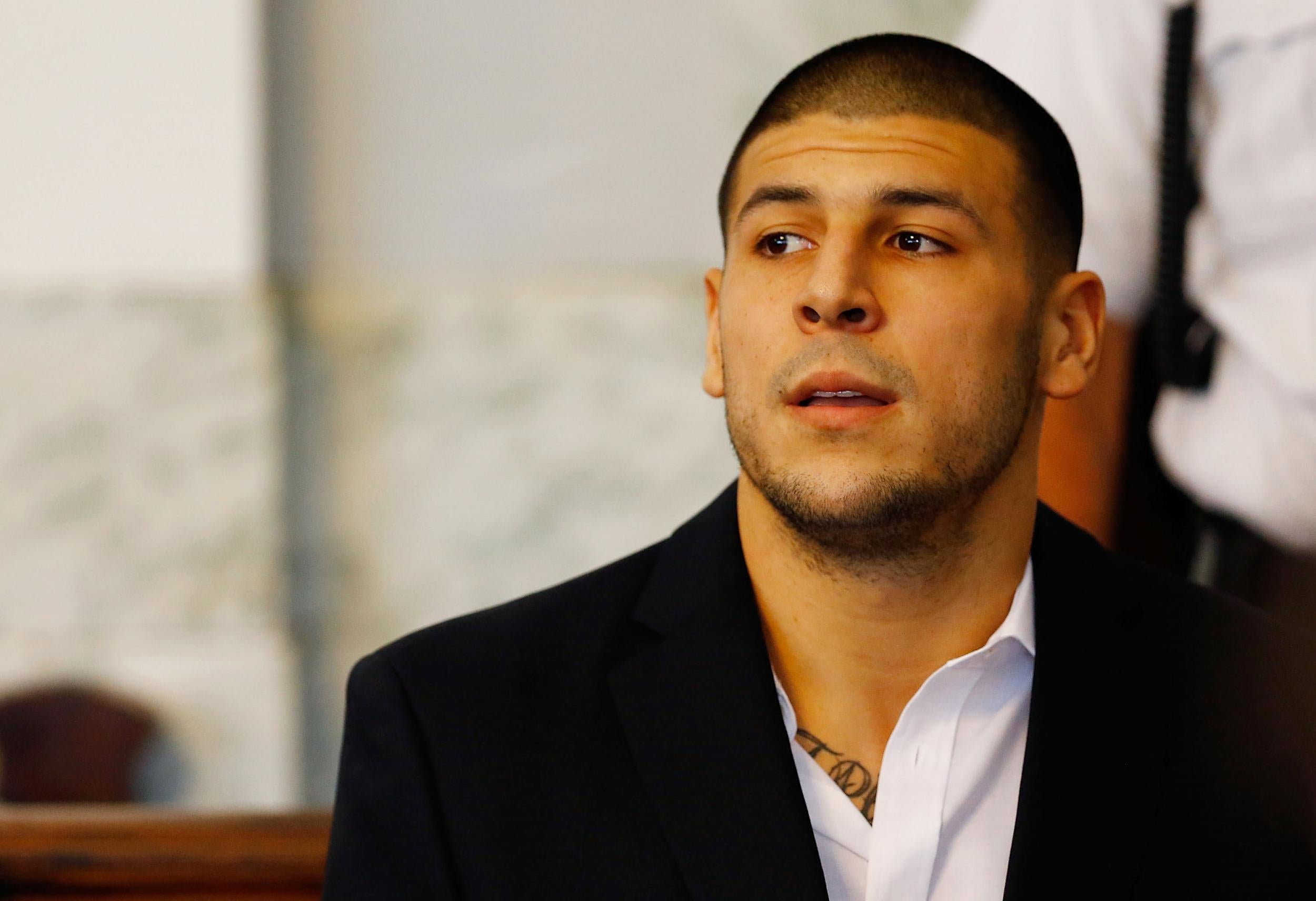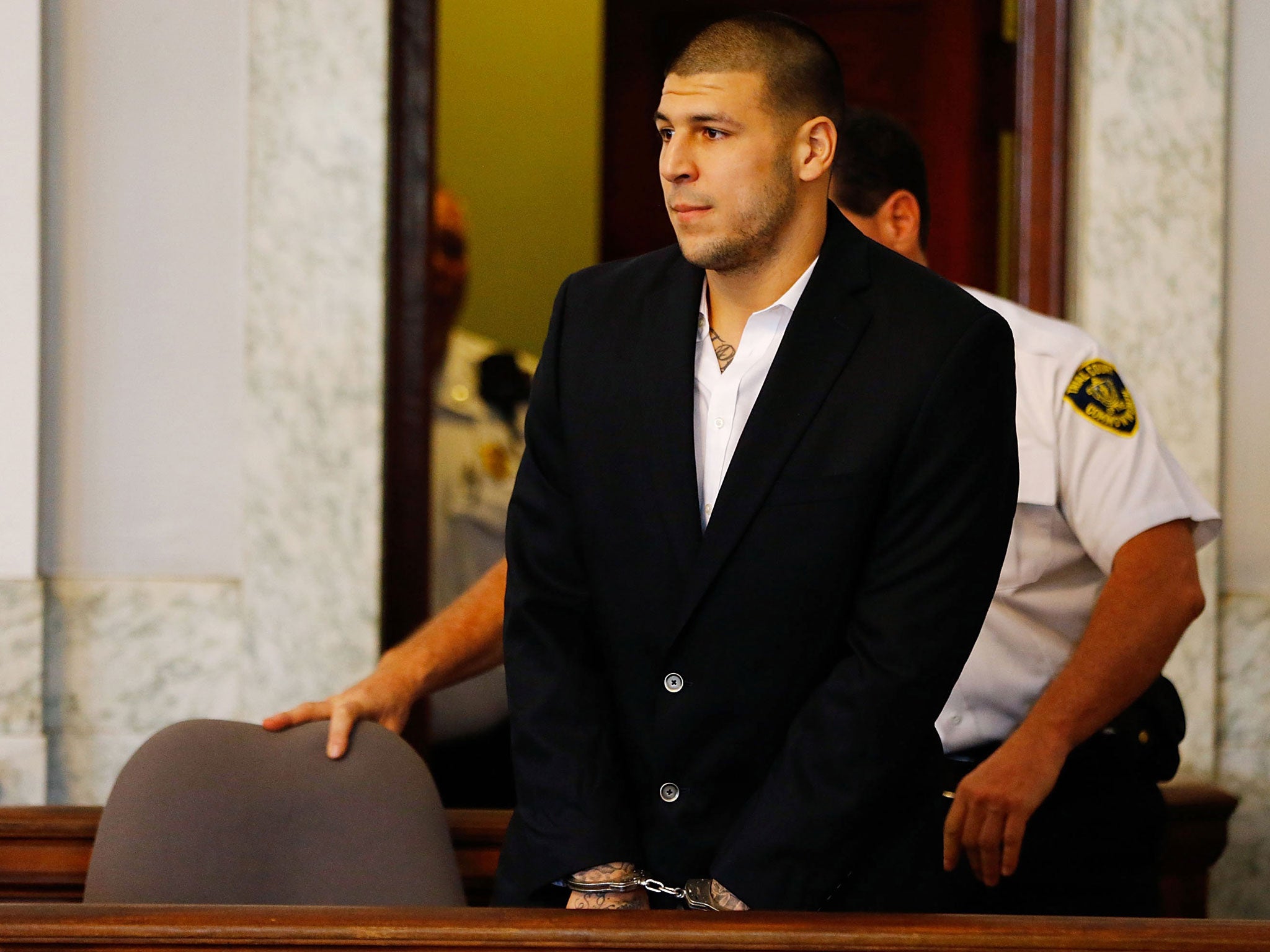Former NFL player Aaron Hernandez had 'severe case' of degenerative brain disease with family set to sue the league
Hernandez killed himself in April in prison where he was serving a life-without-parole sentence for the murder of Odin Lloyd in 2013

Former NFL star Aaron Hernandez was suffering from the degenerative brain disease CTE when he killed himself in jail, a post-mortem examination has found.
Hernandez, who played three seasons with the New England Patriots, was sentenced in 2015 to life in prison without parole for the 2013 murder of Odin Lloyd. He was found hanged in his cell in April this year, with his death ruled as suicide.
His brain was studied at Boston University's CTE Center by neuropathologist Dr Ann McKee, whose research led the NFL to last year acknowledge the link between the sport and CTE.
A statement from BU CTE Center read: "Dr McKee concluded that Mr Hernandez had chronic traumatic encephalopathy (CTE), stage three out of four (stage four being the most severe). This diagnosis was confirmed by a second neuropathologist.
The statement added that Hernandez "had early brain atrophy" and also contained a link to images of his scans, which the centre said demonstrate a specific protein build-up which is "a unique feature of CTE".
Shayanna Jenkins-Hernandez, who was engaged to Hernandez when he died, has filed a lawsuit for damages against the NFL and the Patriots on behalf of the couple's daughter Avielle, alleging they failed to inform Hernandez of the risks of CTE and were in breach of their duty of care to him.
The disease has been linked with increased aggression as well as depression and suicidal tendencies and has been found in the brains of over 100 deceased NFL players including Hall of Famers Mike Webster and Junior Seau.

Jeff Miller, the NFL's senior vice-president of health and safety policy, said last March: "I think certainly based on Dr McKee's research that there's a link because she's found CTE in a number of retired football players."
Former Patriots linebacker Ted Johnson said at the time: "Everybody knows that there's a direct link from multiple concussions from playing football and the brain disease CTE. So the admission, and the doctor representing the NFL admitting that absolutely there's a link, was the biggest tipping point in this whole thing because you can't go back on that."
Later last year, the NFL set aside around a billion US dollars - equivalent at the time to around £800m - to provide compensation for players affected.
Join our commenting forum
Join thought-provoking conversations, follow other Independent readers and see their replies
Comments
Bookmark popover
Removed from bookmarks